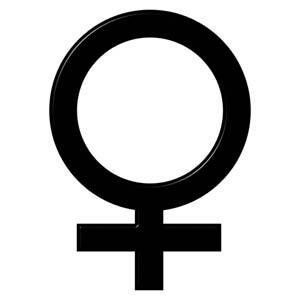What Are Little Boys Made of?
The ultimate goal of having sons still exists in Hmong-American communities.

I have two beautiful healthy daughters. That is more than I could ever ask for. And that is all the children I will have. Yet everywhere I go, Hmong people bring up the discussion of having more children (specifically sons). This is usually how our conversations would go:
“Are you going to have any more children?”
“No. Two is enough.”
“You don’t want a boy?”
“Nope.”
“You should try for a boy.”
“Why?
“So that your spouse can take him fishing and do ‘boy’ stuff with him.”
“If you mean outdoorsy activities like fishing and camping when you say ‘boy’ stuff, then he’s already doing that with our daughters. He doesn’t need a boy to do ‘boy’ stuff with.”
“Well, at least have a son to carry on your clan name.”
“I don’t want any more kids.”
I don’t believe in having children for their gender. If I did, I would have saved up (or racked up credit cards) for in vitro fertilization. I would be able to have as many girls and boys as I want. But no, having a boy was not my motive when I decided I wanted children. It was simply just that: I wanted children. Happy. Healthy. Children.
Males are highly valuable assets in the patriarchal Hmong culture. Like I’ve stated in numerous blogs, the males are the ones to carry on the clan name and care for parents in their golden years. Females are viewed more as a liability than an asset. Because of the way the Hmong culture is set up, when a woman marries, she takes on her husband’s clan name and becomes his “property”. She no longer has ties to her biological family and is considered an “outsider”.
Back in the “old country”, you had to have a lot of children to help out around the house and farm. And they cared for you as you aged. Children, especially sons, were a means to an end. The more sons you have, the more likely you’ll be well taken care of when you retire. And why should parents value a daughter when she will get married and leave? Like all traditions, they make their way into the “new world”. And it is in this “new world” that belief systems collide. For someone like me, who grew up in the U.S. and has embraced my own beliefs, it is difficult when culture and family pressure you to have more children simply because you have no sons.
It is difficult when culture and family pressure you to have more children simply because you have no sons.
Let’s say, for the sake of argument I do want a boy. What if my third child is another girl? Then what? I try and try again, yet girls pop out one after another. Should I try again after my 11th daughter? (Believe me, I know people who don’t stop until they’ve reached their desired number of boys even if they have a gazillion kids running around). No! That is why I don’t believe parents should continue to have children for a desired gender. My parents had seven children (five girls and two boys) because of this so-called “requirement”. I don’t want to have seven children that I know I cannot financially support just because of my greed to have sons.
In today’s world, it shouldn’t matter whether we have daughters or sons, but what that person does with his/her life. You can have a son whom you value above all, but it doesn’t mean anything if he is unmotivated and sits at home all day playing Black Ops. How will he take care of you in old age with that kind of disposition? I see more and more Hmong daughters becoming independent, striving for their dreams, and making something of themselves (to prove to their culture and family they are not just a liability).
I am a proud parent of my children. I will teach them that they’re worth everything life has to offer and no silly Hmong belief or tradition should make them feel inferior to the opposite gender.
This post was originally published in A Hmong Woman in February 2011.

















